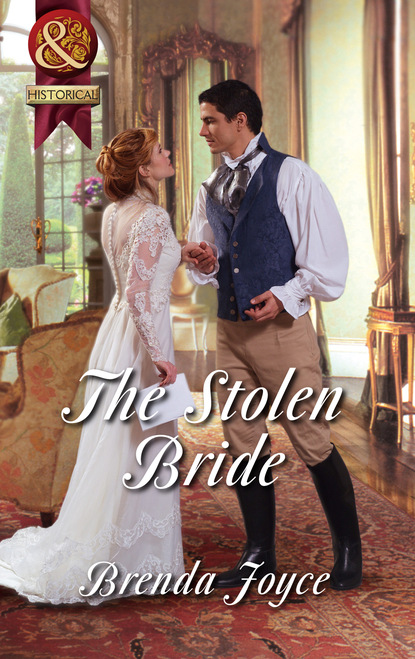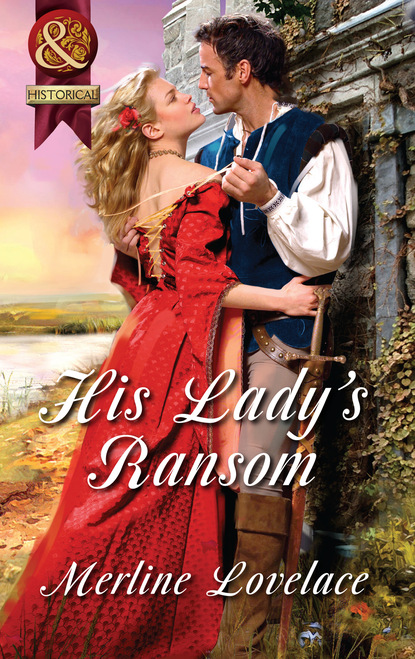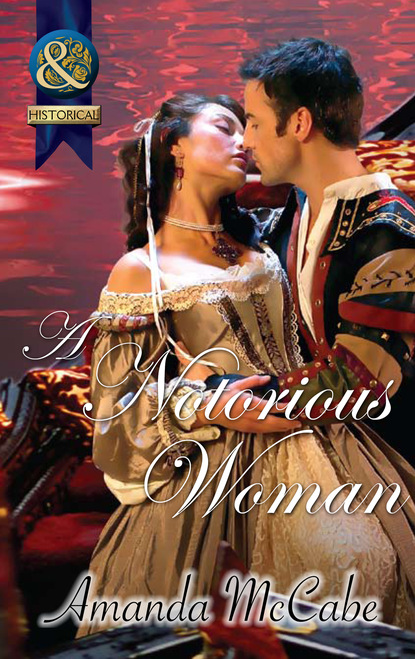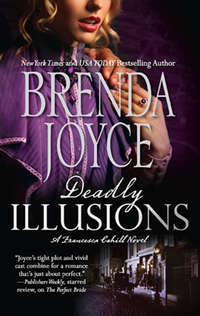
Полная версия
The Perfect Bride
Was Sir Rex lonely?
More unease crept over her, and with it, a sense of confusion. Blanche decided she was a bit too intrigued with her host. Still, she was a close family friend, and even his family was concerned about him. And she did not think Sir Rex could outmaneuver the countess, his sister and his three sisters-in-law, which meant his bachelor days were numbered.
He was hardly a perfect man. This afternoon had proven that. But he deserved more than a solitary existence on his Cornish estate, just as she deserved more than the Harrington fortune. Being kind and fond of his family, she wished him the very best. And she had not a doubt that when the day came that Sir Rex wed, he would give up his preference for housemaids. Somehow, she knew he would be a good, kind and loyal husband. All the de Warenne men were that way.
She didn’t want to think it, but she did. He needed a wife, and she needed a husband. However, she had meant it when she said he would make a terrible husband for her. They were far too different, like night and day, and she sensed grave complications beneath his dark exterior. And his masculinity was far too overpowering for someone like herself. She didn’t know why she had even thought about his future in the same breath as she had thought about hers.
She turned. Meg was shaking out the dove-gray. “Meg? I’ve changed my mind. I’ll wear the green silk with my emeralds.”
CHAPTER FOUR
HE HAD TWO SERVANTS in his employ. Frugal of nature, with no great economy to spare, he preferred to keep his household staff minimal. Now, Rex wished he had a chef. He wanted supper to be perfect. But Anne prepared his meals, while his manservant served as butler, majordomo and valet. Unfortunately, Fenwick had been attending to his errands that afternoon, preventing him from welcoming Lady Harrington properly and thus avoiding the fiasco of her stumbling in on him and Anne.
Rex never bothered himself with the day’s menu. He did not care what was served—he never entered the kitchen. He could not even recall if he had ever done so. Now he swung in, perspiring with anxiety. Anne’s meals were fair. And Anne was now bustling about frantically. Pots simmered on the stove. He could smell roasting lamb. He instantly noted a stable boy stirring one pot, and he was pleased she’d had the initiative to order young Jon to her side. He saw cold pheasant pies on the sideboard. “Anne.”
She whirled, flushed from the kitchen’s heat, never mind the two widely opened windows. “Sir!”
“Is everything in order for supper?”
“Yes, my lord,” she said, wringing her hands and appearing anything but calm.
“Where is Fenwick?” He somehow managed to sound calm, but he’d had no help with his tie and cuff links and he’d been royally annoyed. And now, it appeared that Anne was in over her head.
When he’d had the countess as a guest, an elderly woman had been his housekeeper and she had been a good cook. There had been no other visitors since.
“I sent him to the village for a pie.”
His tension did not ease. It was an hour to the village, another hour back, and he was afraid that Fenwick would not return in time to serve them. “When will he be back?”
Anne seemed nervous. “By eight, I think.”
He just stared at her, wishing she hadn’t sent the manservant to the village and that she’d planned to serve up custard instead. He could not imagine Anne serving them and hovering about while he attempted polite conversation now. It would be impossibly awkward. His temper sparked, rekindling the frustration he’d felt all day. It was as if one rotten incident after another was destined for him. However, Lady Harrington had agreed to spend the night and tonight they were dining together. His heart slammed. One good thing had happened after all. He prayed he’d seen the last of all disaster. He wanted to impress her.
“We will be dining à la Française,” he said softly.
Anne looked helplessly at him, and he realized she was near tears.
He softened. “You will leave every course on the table. We will help ourselves.” Then, “Do not worry. The lamb smells wonderful.”
Relief covered her features.
Just then, Blanche’s maid stepped into the kitchen. He was surprised; she curtsied properly at him. “Why are you not with your lady?” he asked, far more sharply than he intended.
“Lady Harrington is in the hall,” she said softly.
His heart turned over, hard. He was going to have to control his anxiety and his excitement, he thought grimly, or she would realize he had an inappropriate attraction to her. He nodded at her and swung out, tugging at his necktie as he did so. He had almost donned tails, but that would have been absurd. Instead, he’d chosen pale breeches, a silver waistcoat and a fine, dark brown jacket. At least his appearance was impeccable, he thought.
He stepped into the great room and faltered.
Blanche stood by a window, gazing out at the night sky, which shimmered with stars. Clad in a silvery moss-green gown, with a low-cut bodice and small chiffon sleeves, her pale hair curled and swept up, she was impossibly delicate and impossibly beautiful. He was going to have to face the fact that he had always thought her beautiful, but he had done so in a very respectful way—most of the time. Now he simply stared, because they were alone in the great hall of his home. And in that moment, he wanted nothing more than to sweep her up into his arms, cover her mouth with his own, and damn, taste her very thoroughly. But that was never going to happen. Unfortunately, in that moment, the events of that afternoon entirely forgotten, his body betrayed him and he felt his loins stir.
She turned, smiling.
Her composure seemed to have entirely returned. His admiration for her increased. He would give anything if she had truly forgotten about his rendezvous with Anne—and if she thought it irrelevant to his character.
“Good evening. You look as if you have rested.” He bowed very slightly.
Her cheeks were slightly pink, as if rouged, but he knew she used no artifice. “I did nap a bit. Am I early? I see your other guests have not arrived.”
He hesitated. “There are no other guests, I’m afraid.” Had she expected polite company?
She started. “Oh, I had assumed there might be company… I am sorry. It doesn’t matter.” Although her tone was even, her flush increased.
He smiled grimly, wondering if she was dismayed that it would be but the two of them. “I am afraid I am not well acquainted with my neighbors.”
“But you have been here for many years.”
“Yes, I have.”
Her eyes widened in surprise. Now she understood the extent of his reclusive nature, he thought even more grimly. He wished to somehow explain. “Having no hostess, I do not entertain.” And that was not the truth—he despised polite, inane conversation, and hated being pursed by other men’s wives.
Her smile returned. “I am sorry, Sir Rex, I simply assumed you would invite your neighbors. But this is better, is it not? You are the only de Warenne I am poorly acquainted with.”
His heart accelerated. She wished to know him better? He was amazed…he was thrilled. But of course, she was simply making conversation, wasn’t she? Or did she mean her words? “I can only hope I do not bore you with inept conversation.”
She smiled. “I do not recall your ever being an inadequate conversationalist.”
He decided not to point out that their conversations over the years had been extremely limited in duration. “Would you care for sherry or wine?” he asked politely.
“No, thank you,” she said.
He swung on his crutch to the bar cart, aware of her gaze wandering the room. He poured a glass of red wine and faced her. He was startled to find her gaze locked upon him. She smiled and glanced aside; he wondered if his clothing was wrinkled, or in some other manner lacking. The silence became awkward and he worried about the supper that was to come. “Has everything been to your liking? Is there anything else that you need to make your stay a pleasant one?”
She quickly smiled. “There is nothing to complain about. Everything is perfect. Your mother made the chamber most accommodating.”
There had been plenty to complain about, he thought wryly.
“I have noticed your collection of arms,” she said.
He started. “They were my arms in the war.”
“Yes, I realized that. It is an interesting display.”
He stared. “You don’t like it.” And the words tumbled forth without his anticipating them. They were not a question. He somehow knew she disliked the collection.
“Oh, I did not mean to critique your decor.”
“Lady Harrington, I am certain you would never criticize the most slovenly servant, much less your host. But I am curious. Why do you dislike my display?” He wanted to know. He wanted her opinion.
She hesitated. “I am hardly ignorant,” she finally said. “I have heard many accounts of the war, and one of the charities my estate funds provides housing and many other services for veterans who, unlike yourself, can no longer make a go of it.”
His brows lifted. “Are you referring to the Society of Patriots?”
“Yes, I am.”
The society was a tremendous boon to those crippled and maimed by the war. He was impressed, and although it was impossible, his admiration for her grew. “I take it your father became fond of the cause?”
She shook her head. “Father allowed me to manage our charitable contributions. In a way, we had a partnership. I ran Harrington Hall and made the decisions for the allocation of all donations, while he managed all the Harrington properties and the Harrington fortune.”
He hadn’t realized she was more than a lady and a hostess. “Is that why you dislike my display of arms? Because it is a reminder of the war—and how it ruined so many lives?”
She inhaled. “That is one reason, yes. Unlike most ladies, I find nothing romantic about the war.”
He stared. “You are right,” he finally said. “There is nothing romantic or pleasant about war.”
Their gazes met and held.
“And the other reason you dislike my display?”
Blanche hesitated. “I am not certain, but I do not feel pleasant when I look at that display. In fact, I feel saddened by it. Why do you wish to see those arms each and every day? Isn’t the reminder painful for you?”
He flinched. Another man would have brushed her terribly direct comment off. He did not. “Men died under my command,” he said. “Of course the reminder is painful.”
Her eyes widened.
And Rex smiled politely at her and turned the subject to the weather.
THE LAMB TASTED like cardboard. She had no appetite, but she forced herself to finish half of her plate just as she willed herself to remain calm. But every time she looked down, she felt Sir Rex staring at her. She was accustomed to his stares, but not like this. At a ball their gazes might meet once or twice, a dozen people between them. She might even send him a smile, or he might do the same to her. This was entirely different. It was awkward. An odd tension seemed to fill the room. His stare was oddly masculine and terribly searching. It even seemed bold. She wished he had invited others to dine with them. It was simply too difficult, two strangers dining tête-à-tête like this, especially after the crisis of that afternoon.
How could one small incident unbalance her so?
They had managed to keep a polite, if stilted, conversation going; it was a miracle, from her point of view. Still, finally, a long and awkward silence had fallen.
From the corner of her eyes, she watched his hands. They were darkly tanned, big and strong, the fingers long and blunt. Yet his hands moved with extraordinary grace—just as he did, in spite of the crutch he used. Watching his fingers touch fork and knife, she thought about his hands on Anne.
Her heart lurched and her body almost ached. She could not imagine what was wrong with her.
He said slowly, “I have been thinking about Penthwaithe.”
Blanche swallowed, relieved to be discussing a proper topic. She tore her gaze from his strong hands and looked up. She was scorched by his dark, intent gaze, yet she smiled firmly.
“What will you do if you find Penthwaithe in the condition I believe it to be in?”
“I hope you are wrong. But if you are correct, I will begin some repairs.” She noticed that he hadn’t eaten a thing—but he had finished most of the bottle of wine. She’d taken a single sip from her glass.
The gossips also said he drank too much, sometimes before noon. She had always thought it an unfair accusation, and she suspected it was untrue. He was too industrious to imbibe without control and discipline.
“Would you allow me to join you on the morrow, Lady Harrington?”
She was stunned and their gazes met. She could not imagine sharing a coach with him. Before she could respond, he said, “I am concerned with the condition the manor may be in. I have a strong sense that you may need my assistance—assuming there has not been a bungled mess made of the titles.”
The request was perfectly proper—and she might need his assistance. But could she manage an entire day alone with him when she was barely able to navigate her way through a simple supper? It would help if he did not watch her so closely. It would help if she could really forget seeing him with the maid. Unfortunately, that scene would remain etched on her mind for a very long time. And in the confines of her coach, they would be seated far too closely together, making the memory very hard to avoid. Besides, his presence was too masculine. It would be so much better to avoid it—him—at least until she felt more firmly in control of herself.
She glanced at his strong hands, willing herself not to open up her mind to any memory of that afternoon. “I hate to put you out,” she somehow said. “You surely have many affairs to attend here.”
“You cannot put me out,” he insisted. “My own affairs can wait. I am very concerned, and as a family friend, I think I must accompany you.”
She tensed. He was insisting. “Penthwaithe may be in a fine condition. I am assuming all is well and I will be moving my belongings there.”
His stare was unwavering.
“Of course you may accompany me.” She inhaled. The last thing she wished to ever do was insult him and there was no graceful way to refuse.
He nodded, his jaw flexing.
Their plates were cleared by a manservant she had not seen previously. She took the opportunity to attempt to regain a calm demeanor. But she was convinced that she must seek out a physician the moment she returned to town, as something was wrong with her heart. It kept beating far too rapidly.
Dessert was served. Blanche knew she could not manage a single bite and Sir Rex pushed his plate aside. He said, “Have you many suitors?”
Briefly, the question surprised her. “I have two hundred and twenty-eight.”
His surprise was comical. “You are in jest!”
“Unfortunately, no, I am not.” She smiled. “A shocking number, don’t you think?”
His stare intensified. “A very shocking number,” he said. And then he turned to his wine.
Blanche wondered what he was really thinking.
He lifted his long, dark lashes and pierced her with his stare. “Is there anyone you admire?”
Her heart skipped. For one moment, it was hard to speak. “No, not really.”
He smiled grimly. “I am sure the right prospect will appear.”
She avoided his eyes, trying to hold at bay an image of gleaming, wet muscle, bulging arms and an expression of rapture. “Yes, that is what I am hoping.”
BLANCHE LEANED FORWARD as her coach turned onto the road marked Penthwaithe. It was the following morning, an hour before noon. She had left Sir Rex alone downstairs after supper, wondering if he intended to imbibe alone, and worrying if that was how he spent his evenings. And the moment she had climbed into bed, never mind that it was only nine o’clock, exhaustion had claimed her. She thought about her enigmatic host, recalled the tryst she had witnessed and fell promptly asleep. She slept deeply and peacefully and had awoken only with Meg’s encouragement.
Sir Rex had not joined her for breakfast. She had learned he was busy with his grooms, apparently dealing with his horses. And he was not sharing her coach now. He was riding astride.
Blanche hadn’t realized a man with half of a leg could ride astride, but she had hid her amazement and pretended his behavior was routine. She had quickly discovered that he rode with great skill, as if a part of his horse, carrying a cane where his right calf should have been. But of course, every cavalryman was required to attend the riding academy before ever gaining admission into the service.
Now, she felt some trepidation. The highway had been rutted, but this road had severe holes and was strewn with rocks, some of such significance her coachman began to weave amongst them. Blanche wondered at the lack of upkeep, glancing now at the moors. She saw not a single grazing cow or sheep.
She glanced toward Sir Rex, who rode abreast of the carriage. His crutch had been folded in on hinges, and hung from a hook on his saddle. He rode with extreme ease, his mount a huge, magnificent beast. It was obvious he was a master horseman; she remained very impressed. Worse, that odd flutter remained in her chest.
He glanced her way, his expression somber. Blanche knew he did not care for the maintenance of the road.
Now, however, she saw some buildings on the right. As her coach came closer, she saw that they were mere stone shells, having been gutted long ago, but whether by fire or the elements and lack of care, she did not know.
It was beginning to appear that Sir Rex was right and Penthwaithe might be in a state of severe disrepair. The plan had been for her to holiday at the estate. But her plans might well be in jeopardy—and she was not ready to go back to London and face her horde of suitors. Blanche hesitated, aware that she could not impose upon her host for much longer, especially after the tryst she had witnessed.
“The manor lies ahead,” he called to her.
Blanche poked her head entirely out of the carriage window to glimpse it. She saw a square stucco building, plain and unimpressive in appearance, unadorned by trees, hedges or ivy. A small water fountain graced the courtyard, but it was not functioning. A small stone building was in the distance, probably serving as a stable. Now she saw some sheep grazing behind the barn, and two very thin cows appeared, wandering into the front yard. Blanche suddenly saw a pair of young boys, one hauling a bucket, the other carrying a basket. They were barefoot, their pants too short, and they went into the house.
Penthwaithe was not a thriving estate. The contrast to Land’s End was glaring. Worse, she did not have to step inside the manor house to know she was not going to stay there.
Her coach halted. Blanche waited for her footman and alighted, joining Sir Rex, who had dismounted and was glancing around. From the front courtyard, she could see piles of animal droppings everywhere and a cart left almost in the path leading to the front door. Scum adorned the water in the fountain. Not only was it stagnant, the statue of a fish from which the fountain should have run was seriously broken. She saw a sparse vegetable garden on her left. She grimaced. How had Father left the estate in such a condition? Her father was meticulous when it came to attending to his property. She couldn’t believe he would allow tenants to stay on if they cared so little for the manor.
Sir Rex swung over. “You will not be staying here.” He was firm.
Blanche continued to grimace. “Obviously not.” She hesitated. “I had no idea…this is terrible.”
“It is slovenly,” he said abruptly. “The estate is not my affair, but had I tenants such as these, I would terminate the lease.”
Blanche hesitated. She thought about the two small barefoot boys.
His stare was unwavering. “You have had a long journey from town. You may stay on at Land’s End as long as it suits you.”
She was very surprised. “I can hardly impose upon you.”
“Why not?”
And before she could react, he swung rapidly to the front door. As he knocked, Blanche followed and paused beside him.
A nursing woman opened the door. Her eyes widened.
“This is Lady Harrington,” Sir Rex said firmly. He didn’t look at the suckling infant. “I am Sir Rex de Warenne of Land’s End and Bodenick. Where is your husband?”
Terribly surprised, the woman removed the infant, closing up her dress. “He may be in the stable, or out in the fields, plowing.”
“Summon him, please. We wish a word.”
The woman turned. “James! Go get your father, now! Tell him a lord and lady are here. Hurry!”
Blanche was peering past Rex. She had seen such squalor in London. While working with the sisters of St. Anne’s, she had attended some very impoverished and ill women in their homes. But the manor looked as if it hadn’t been repaired or even cleaned in years. The wood floor in the entry and hall was coming up in sections, or missing entirely, there was very little furniture, and paint was peeling from the walls, which were blackened in some places. Blanche now saw two young girls and one of the boys she had seen earlier. The boy who had gone off to fetch his father was probably eleven or twelve years old. The three children facing her from behind their mother were between the ages of two and eight. She saw wide eyes and pinched faces.
This poor family was in dire need. She reached out, instinctively touching Sir Rex’s hand. He started, looking at her.
Blanche dropped her hand but held his gaze. Something had to be done.
“My lord, my lady!” a man cried, huffing and out of breath, coming up behind them.
Blanche turned, as did Sir Rex. A tall, thin man approached, eyes wide and fearful. Instantly he bowed.
“You are?” Sir Rex asked.
“I am Jack Johnson, my lord.”
“Sir Rex de Warenne, and this is Lady Blanche Harrington.”
He blinked. “Please, come in. Bess, boil up some tea.”
His wife rushed to obey.
“Please, we are not in need of tea or anything else,” Blanche said firmly. She would not deprive them of their spare provisions. “I have merely come to inspect the estate.”
He plucked nervously at his collar. “Are ye buying it? Is that why you’ve come to inspect it?”
Blanche started. “My father passed, Mr. Johnson, and the fact that this manor is a part of my inheritance just recently came to my attention.”
Johnson shifted uneasily. “We’re good people, my lady. But…” He stopped.
Sir Rex was staring at the man, clearly thinking there was no excuse for the squalor. “But what?”
He inhaled. “I mean no disrespect, but I am confused. Lord Bury has owned the manor for years. I didn’t know he was dead—or that there are heirs! He was so young and a bachelor himself!”
Blanche tensed and glanced at Sir Rex. “I do not know any Lord Bury, Mr. Johnson. Now I am confused. Are you saying that Lord Bury owns the manor? For my solicitor recently found a document indicating that the manor is a part of the Harrington fortune.”
“Lord Bury inherited Penthwaithe from his father, perhaps six or seven years ago. In fact, he was here three months ago to inspect it and collect his rents. I thought you might be his agents, come to see if I have improved it as I swore I would do! But he sold the estate to you? I didn’t know.”
Blanche froze.
Rex faced her. “Blanche, are you certain about the title you saw?”
Blanche shook her head. My God, there had been a monumental mix-up. For it no longer appeared that her father had owned the estate for years. But if Lord Bury had been out to collect the rents three months ago, how could her father have purchased the estate from him? Her father had been dead.
She began to have an inkling, and she tensed, thinking, Bess?
And she quickly thought about the events leading to the title’s discovery. The solicitor who had told her of the title had been surprised by its existence. He had been very frank: he hadn’t heard of Penthwaithe in all the years he’d been employed by Harrington. But Harrington hadn’t owned Penthwaithe for years, Bury had. And Bess had been with them and she’d remarked that this kind of mix-up happened all the time. Oh, how casual and certain she had sounded! And there had been an odd gleam in her eyes!












